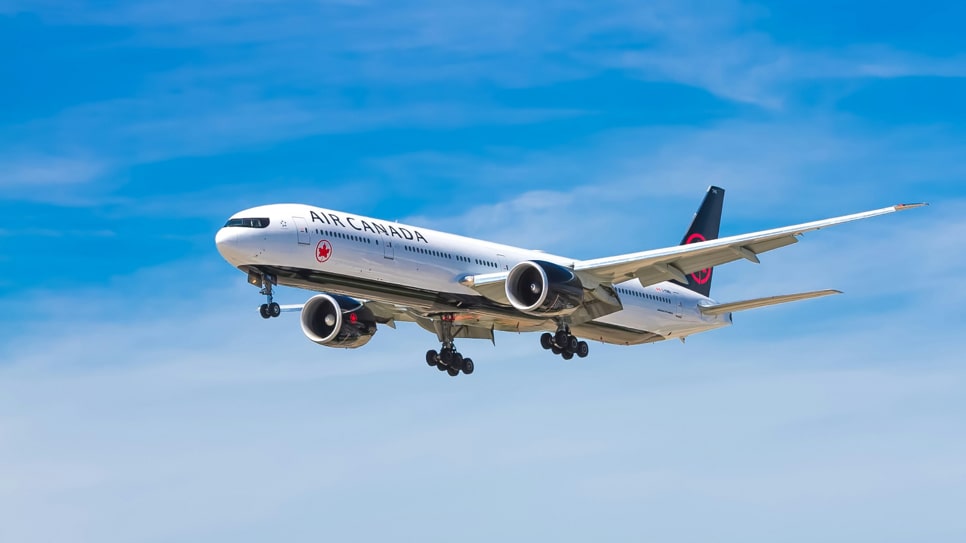Contents
- 1 Do You Need a Visa to Enter Japan? Who Is Eligible and What Are the Procedures?
- 2 Who Needs a Visa to Enter Japan and Who Does Not?
- 3 Types of Visas for Japan and Their Characteristics
- 4 How to Apply for a Visa and Required Documents
- 5 Frequently Asked Questions and Common Issues with Visa Applications
- 6 Special Visa Programs and Exceptional Cases
- 7 To Ensure a Smooth Visa Application: Understanding and Preparation Are Key
Do You Need a Visa to Enter Japan? Who Is Eligible and What Are the Procedures?
For first-time visitors to Japan, the visa system can seem complicated. However, the required procedures vary greatly depending on your nationality, purpose of travel, and length of stay.
In this guide, we provide a comprehensive explanation based on the latest information—from a list of visa-exempt countries, to online application procedures, special visa programs, immigration tips, and how to handle common issues. Whether you’re traveling for tourism, business, or study, this guide will help you prepare with confidence.
Who Needs a Visa to Enter Japan and Who Does Not?
Visa-Exempt Countries and Their Conditions
Countries Exempt from Short-Term Stay Visa
Japan grants visa exemption measures for short-term stays to certain countries and regions. Nationals of these countries can stay for up to 90 days for tourism, business, and other purposes (duration varies by country). Examples include the United States, Canada, South Korea, France, and others.
Asia
- Indonesia
- Singapore
- Thailand (up to 15 days)
- Malaysia
- Brunei (up to 30 days)
- South Korea
- Taiwan
- Hong Kong
- Macau
- United Arab Emirates (up to 30 days)
- Qatar
Europe
- Iceland
- Ireland
- Andorra
- Italy
- Estonia
- Austria
- Netherlands
- Cyprus
- Greece
- Croatia
- San Marino
- Switzerland
- Sweden
- Spain
- Slovakia
- Slovenia
- Serbia
- Czech Republic
- Denmark
- Germany
- Norway
- Hungary
- Finland
- France
- Bulgaria
- Belgium
- Poland
- Portugal
- North Macedonia
- Malta
- Monaco
- Latvia
- Lithuania
- Liechtenstein
- Romania
- Luxembourg
- United Kingdom
North America
- United States
- Canada
- Bahamas
- Barbados
- Mexico
Central and South America
- Argentina
- Uruguay
- El Salvador
- Guatemala
- Costa Rica
- Suriname
- Chile
- Dominican Republic
- Panama
- Paraguay
- Barbados
- Brazil
- Honduras
- Mexico
Oceania
- Australia
- New Zealand
Middle East
- United Arab Emirates (up to 30 days)
- Israel
- Qatar
- Turkey
Africa
- Tunisia
- Mauritius
- Lesotho
Differences in Visa Exemption Periods (15 days, 30 days, 90 days, etc.)
The visa exemption period varies by country and may be 15, 30, or 90 days. If your stay exceeds this period, you must leave the country or obtain a visa.
Considerations by Purpose of Travel (Tourism, Business)
Travel for tourism purposes generally undergoes a more lenient review, but visas may be required for business or remunerated activities. It is important to clearly state the purpose of your stay.
Countries Requiring a Visa and Their Reasons
Security and Diplomatic Reasons
For certain countries, visas are mandatory due to security or diplomatic reasons. Additional documents or interviews may be required during the application process.
Trends Among Countries with High Traveler Numbers
Even countries with many visitors to Japan may require visas under current regulations. For example, India and China are subject to the online visa system.
Possibility of Future Visa Exemptions?
Visa exemptions may be expanded in the future through government negotiations. Check the Ministry of Foreign Affairs official website for the latest information.
Preparations Required Even with Visa Exemption
Passport Validity
Even with visa exemption, it is recommended that passports have at least six months of validity remaining.
Possession of Return or Onward Ticket
At immigration, you may be asked to present a return or onward ticket to a third country.
Proof of Planned Stay (e.g., Hotel Reservations)
Immigration may request confirmation of your accommodation or schedule, so it is advisable to prepare proof such as hotel reservations in advance.
Types of Visas for Japan and Their Characteristics
Short-Term Stay Visa (Tourism, Business, etc.)
Required Documents for Application
Basic documents include a passport, application form, photograph, planned itinerary, proof of financial support, and sometimes an invitation letter.
Allowed Duration of Stay and Extensions
The stay is generally limited to 90 days. Extensions are generally not permitted, but in unavoidable circumstances, applications can be made at the Immigration Bureau.
Differences Between Tourist Visa and Business Visa
Tourist visas cover travel for sightseeing and visiting relatives, while business visas include attending conferences and negotiating deals. Required documents vary depending on the visa type.
Mid- to Long-Term Stay Visas (Work, Study, Spouse, etc.)
Main Types and Application Requirements
Requirements differ according to residence status such as Technical Intern Training, Engineer/Specialist in Humanities/International Services, Student, and Spouse of Permanent Resident.
Relationship with Residence Status
Mid- to long-term visas are linked to residence status, and a residence card is issued after entry. Renewals and changes require screening.
Important Notes on Renewal and Changes
Renewal applications must be submitted before the residence period expires. Prompt procedures are required when changing status due to job change, divorce, or other reasons.
Electronic Visa (e-Visa) System
Eligible Countries and Implementation Status
JAPAN eVISA targets residents of countries and regions that require short-term stay visas, including:
- United Kingdom, Australia, Canada, Cambodia, Saudi Arabia, Singapore, Taiwan, Brazil, United States, South Africa
Residents of these countries can apply online via the JAPAN eVISA website. However, residents of the following countries must apply through authorized agencies:
- China, Vietnam, United Arab Emirates, India, Indonesia, South Korea, Hong Kong, Macau, Mongolia
For details, please check the websites of Japanese diplomatic missions abroad.
Eligible Visa
Short-term stay single-entry visa for tourism purposes (up to 90 days).
Applicants through JAPAN eVISA receive an electronic visa. However, for residents of the following countries, the allowed stay period may be shortened:
- Chinese nationals residing in China: 15 or 30 days electronic visa
- Vietnamese nationals residing in Vietnam: 15 days electronic visa
Online Application Process
- Access the JAPAN eVISA site and fill in the required information.
- Upload the necessary documents.
- Pay the visa fee online.
- Receive the examination result notification.
Applicants may be required to visit the Japanese diplomatic mission during the screening process.
Important Notes for Travel
- Travel must be via airplane or ship to Japan.
- The “Visa Issuance Notification” must be displayed on a mobile device at the airport. PDF files, screenshots, or printed copies are not accepted.
Important Notes
- If application documents are incomplete, the examination may be terminated.
- Incorrect information or failure to upload required documents may delay screening or result in visa denial.
How to Apply for a Visa and Required Documents
Applying at Overseas Diplomatic Missions (Embassies and Consulates)
List of Application Locations by Country
To obtain a Japanese visa, applications must be submitted at Japanese embassies or consulates located in each country. The application location varies by country and city, so it is essential to check the latest information on the official website of the Ministry of Foreign Affairs or the website of the local Japanese embassy or consulate. In some regions, the visa application process may be outsourced to visa centers.
How to Make an Appointment
Many Japanese diplomatic missions require an appointment in advance. Reservations can typically be made by phone, email, or through an online booking system. Depending on demand, appointments may be fully booked several weeks in advance, so it is advisable to plan ahead. You will usually be asked to provide your full name, intended travel date, and visa type when making a reservation.
Tips for In-Person Applications
When visiting the embassy or consulate for your application, it is important to remain calm and polite. Make sure to bring all necessary documents, including both originals and copies. If you are not fluent in the local language, consider bringing a translator or prepare to explain your situation in English to the staff. Always provide accurate information and never submit false statements.
Online Application Process and Key Considerations

How to Use the Official Online Portal
Access the Japanese government’s official Online Visa Application Portal and follow the on-screen instructions. You will be asked to enter your personal information, travel plans, and visa type, and upload the required documents. The portal often supports multiple languages and is relatively user-friendly. If you encounter any difficulties, refer to the FAQ section or use the available chat support.
Online Visa Application Portal: https://www.moj.go.jp/isa/applications/online/onlineshinsei.html
Required Data (Passport Image, etc.)
For online applications, you will need to upload electronic data such as a scanned image of your passport’s photo page, a recent ID photo, your travel itinerary, and an invitation letter if applicable. Be sure to check the required file formats (PDF or JPEG) and file size limits in advance. There are also strict rules for photo specifications, including background and resolution.
Payment Methods and Fees
Visa application fees can be paid online via credit card or other accepted methods. The exact amount depends on the visa type and the applicant’s country. Your application will only be officially accepted after the payment is completed, so double-check to avoid errors or incomplete transactions. Please note that visa fees are generally non-refundable once paid, even if the application is canceled.
Applications via Representatives or Travel Agencies
How to Write a Letter of Proxy
If the applicant is unable to apply for a visa in person, it is possible to apply through a representative or a travel agency. In such cases, a letter of proxy must be submitted. The proxy letter should clearly state the applicant’s full name, address, and passport number; the representative’s name and contact details; and the scope of the authorization (such as handling the visa application process). The applicant must sign or stamp the letter. Some Japanese embassies or consulates provide sample forms on their official websites.
Common Issues and How to Avoid Them
Common issues in proxy applications include “incomplete documents,” “lack of explanation by the representative,” and “misunderstanding of application details.” When using a travel agency, there is a risk of submitting incorrect information if the agency does not fully understand the visa type or requirements. To avoid such problems, always confirm the necessary documents in advance and ensure the representative clearly understands the purpose and contents of the application.
Preparation Tips to Improve Your Success Rate
Even when applying through a representative, preparation is crucial. Prepare a clear itinerary, invitation letter, and financial proof such as a bank balance certificate to support your application. If you have previous travel records or long-stay history in Japan, including these documents will add credibility. It is also recommended to choose a travel agency with proven experience in handling Japanese visa applications.
Frequently Asked Questions and Common Issues with Visa Applications
Common Reasons for Visa Application Rejections
Incomplete Documentation
One of the most common reasons for visa denial is incomplete documentation. This includes missing required documents, incomplete forms, or inconsistencies in the submitted information. Be sure to use a checklist before submitting your application to avoid any errors or omissions.
Mismatch with Purpose of Stay
If the declared purpose of visit does not match the actual travel intent, the visa may be rejected. For example, applying for a tourist visa while planning to engage in business activities may lead to rejection. It is important to choose the correct visa category that accurately reflects your travel purpose and to explain it clearly in your documents.
Cases Considered as False Declarations
If the immigration authority determines that the information submitted is false, the application will be immediately denied, and future applications may also be affected. This includes hiding a past entry denial, falsifying income, or submitting forged documents. Even small discrepancies can be taken seriously, so all information must be honest and accurate.
How to Reapply or File an Appeal
Reapplication Timeframe
If your visa application is denied, you can still reapply. However, if the content of the application is identical to the previous one, there is a high chance it will be rejected again. Although there is no strict waiting period, many Japanese embassies and consulates recommend waiting at least three months before reapplying. It is crucial to understand the reason for rejection and revise your application before submitting it again.
Points to Improve
To increase the chances of success on reapplication, review your previous application carefully to identify any issues. Key areas for improvement include correcting any document deficiencies, strengthening your explanation of the purpose of stay, and providing more robust financial proof. If you have a sponsor or inviter in Japan, ensure their documents and credibility are solid. Additionally, providing a more detailed itinerary can help prevent misunderstandings.
When to Consult a Lawyer
If you find it difficult to proceed with a reapplication or appeal on your own, it may be helpful to consult a lawyer or immigration specialist. This is especially important if you have a history of overstaying or past entry refusals. While formal appeals are generally not accepted, submitting supplementary explanations or updated documents may still be possible with proper guidance.
Important Points at Immigration Control
How to Fill Out the Immigration Card
The immigration card, distributed on the plane, must be submitted along with the customs declaration form upon arrival. You will need to fill in your name, nationality, flight number, address in Japan, and purpose of stay. Fill out the form in English or Japanese and make sure there are no omissions. All foreign nationals entering Japan are required to submit this card, so be sure to complete it in advance.
Answering Questions in English
At immigration, officers may ask questions in English regarding your purpose of visit, length of stay, return date, and accommodations. It is helpful to prepare for these questions in advance and respond clearly and accurately. If you have an inviter in Japan, be ready to provide their contact information upon request.
Bag Inspections and Secondary Screening
In some cases, you may be selected for a baggage inspection or secondary screening after the immigration interview. This does not necessarily indicate any wrongdoing—it is often a standard procedure when further clarification is needed. Stay calm and answer all questions honestly. If necessary, you can request an interpreter. Make sure to review your customs declaration beforehand to avoid omissions or misstatements.
Special Visa Programs and Exceptional Cases
Diplomatic and Official Passport Holders
Differences in Visa Exemption Conditions
Holders of diplomatic or official passports are often granted different visa exemption conditions compared to regular passport holders. In Japan, certain diplomatic or government officials from specified countries may enter without a visa for stays up to 90 days, depending on bilateral agreements. However, conditions vary depending on the country and the purpose of stay, so it is essential to check with the Japanese embassy or the Ministry of Foreign Affairs beforehand.
Immigration Screening Procedures
Diplomatic and official passport holders may be offered priority lanes at some airports, but they are still required to undergo immigration screening. They may be asked to present documents explaining the purpose of visit and accommodation details. In most cases, those planning long-term stays are expected to obtain a diplomatic or official visa in advance.
Treatment of Accompanying Persons
Family members and accompanying staff of diplomatic or official travelers may not automatically qualify for the same visa exemptions. They may need to apply for visas individually, depending on their nationality and passport type. Also, if their stay involves activities beyond the scope of diplomatic status, additional procedures may be necessary.
Special and Re-entry Permits
Overview of the Special Re-entry Permit System
Foreign residents of Japan with mid- to long-term status can use the “Special Re-entry Permit” system, which allows them to leave Japan temporarily and return within one year without applying for re-entry permission in advance. At the airport, travelers must indicate their intention to return, and have their residence card stamped. However, re-entry is not permitted if the one-year period is exceeded, so careful planning is necessary.
Exceptions During the COVID-19 Pandemic
During the COVID-19 pandemic, Japan implemented special measures such as extensions for re-entry permit validity due to travel restrictions. These measures applied to foreign residents who were unable to return to Japan due to border closures or flight suspensions. Similar exceptions may apply during future emergencies, so it is important to check updates from the Ministry of Foreign Affairs or Immigration Services Agency.
Handling Missed Applications Before Departure
If a foreign resident leaves Japan without obtaining the required re-entry permit (especially when staying abroad for more than one year), their residence status is typically considered expired. However, in exceptional cases, re-entry may be allowed by reapplying for a new visa through a Japanese embassy or consulate. Always confirm your residence status and permit requirements before leaving Japan.
To Ensure a Smooth Visa Application: Understanding and Preparation Are Key
Understanding the visa system properly will make your travel preparations for Japan much smoother.
Japan’s visa system includes a wide range of rules that vary depending on your nationality and purpose of visit. Even travelers from visa-exempt countries may be required to have a valid passport with sufficient validity and a return or onward ticket. For those who need a visa, preparing the required documents and being ready for an interview is essential.
In addition, individuals who hold diplomatic or official passports, or fall under special categories such as the e-VISA system, should check the specific conditions that apply to their cases in advance.












